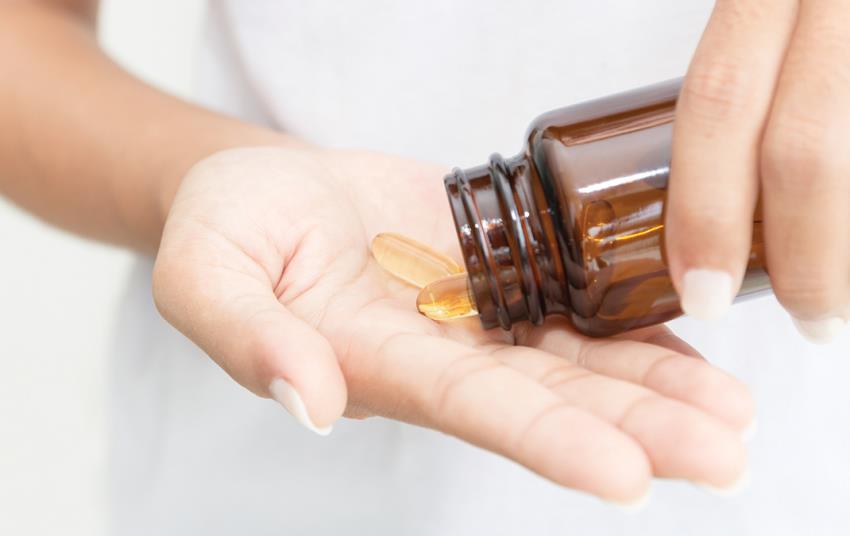Since 1994, the number of supplements has expanded almost 20 times, according to the U.S. Food and Drug Administration (FDA), and business is booming. Market reports say the U.S. supplement industry is expected to exceed $68 billion in 2023. This growth is all the more remarkable considering that the FDA is not authorized to regulate or approve these products for safety or effectiveness under the Dietary Supplement Health and Education Act.
It seems like everyone, including people with neurologic disorders, takes vitamins and supplements. We asked Brain & Life editorial board members if their patients use these products, and if so, why.
“Some of my patients believe supplements are ‘natural,’” says Barbara Giesser, MD, FAAN, a neurologist at the Pacific Neuroscience Institute in Santa Monica, CA. “They tell me they think supplements are safer than drugs even though they’re not tested for safety and effectiveness the way pharmaceuticals are.”
There is a green halo around supplements, agrees Jori Fleisher, MD, FAAN, associate professor of neurological sciences at Rush University in Chicago. “Many of my patients believe supplements are ‘green’ or ‘natural’ and can’t hurt them because of that.” She points out that many pharmaceuticals are derived from natural sources and are recognized as having a therapeutic benefit. Unlike supplements, she adds, pharmaceutical medications have been tested, proven, and regulated so people are getting the right amount. “And we can counsel our patients about what to expect and the side effects. We can’t do that with supplements because manufacturers don’t have to prove that what they say is in the bottle is actually in the bottle or that their claims are true.”
People with migraine often want an alternative to pharmaceutical drugs, says Teshamae Monteith, MD, FAAN, associate professor of neurology at the University of Miami’s Miller School of Medicine. “They are worried about adverse events or don’t want a strong medication or don’t want to feel ‘drugged.’”
Neurologists are concerned that very few supplements have been tested with the kind of rigor required for pharmaceutical drugs—large, multicenter, randomized, placebo-controlled trials that prove that a particular vitamin or supplement will provide a specific benefit.
The most recent study of vitamin D’s effect on multiple sclerosis (MS), published in The Lancet in 2023, did not show that vitamin D as an add-on therapy reduces relapses, says Dr. Giesser, an MS specialist. “The data for supplements having a disease-modifying effect on MS are just not there,” she adds. Dr. Giesser encourages her patients to get their vitamins and minerals from food as much as possible and only consider taking supplements if they have a documented deficiency.
Dr. Fleisher, who specializes in Parkinson’s disease and other movement disorders, also counsels her patients to rely on food for vitamins and minerals. And she stays up-to-date on the latest research, especially concerning B vitamins and Parkinson’s. Three studies in the last three years found an association between B12 supplementation and slight improvements in symptoms in people with early untreated Parkinson’s. That evidence, Dr. Fleisher says, isn’t compelling enough. And, she notes, high doses of B6 can cause neuropathy (weakness, numbness, or pain in hands or feet).
For her patients with migraine who may benefit from taking vitamins and supplements as adjunct therapy, Dr. Monteith is guided by studies that prove their effectiveness and safety. She also factors in cost. “For migraine prevention, there is evidence for magnesium and riboflavin, which tend to be most affordable,” she says. Other supplements for migraine prevention include melatonin, CoQ10, ginger, and lavender. Another option is butterbur, which has a good level of evidence, Dr. Monteith says. “It’s important to select a brand that has taken extra safety measures to remove pyrrolizidine alkaloids, which can potentially harm the liver.” For people with debilitating or disabling migraine attacks, Dr. Monteith does not suggest vitamins or supplements. Instead she frequently recommends calcitonin gene-related peptide (CGRP) inhibitors, pharmaceuticals that target the migraine mechanism. “CGRP inhibitors are often better tolerated than other oral drugs,” she says.
People will continue to take vitamins and supplements no matter what they hear from their doctors, say these neurologists. Given that, they ask that patients tell their doctors about everything they are taking, since some supplements can interfere with drugs. For instance, St. John’s wort can negatively interact with antidepressants, says Dr. Giesser. They also suggest that patients allocate their resources for more worthwhile products and pursuits. “Spend the money on a better pair of tennis shoes or physical therapy or exercise,” says Dr. Fleisher.
